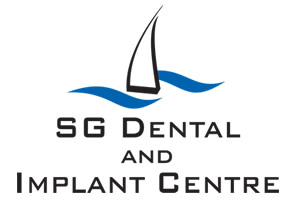Are You Baffled By Dental Terminology?
Dentists sometimes use words and phrases that can be confusing for the patient – our Burton team explains….
Most patients are familiar with the more commonly used dental terms such as fillings, cavities etc. Sometimes though, dentists can forget that what they say may be confusing for the patient, especially as we discuss treatment with others in our team who, like us, have been trained using these terms.
In today’s blog, Mike Allen’s Dental Practice team will try to explain a few of the things that we might say which may not be overly familiar to you and which we hope will help you in the future. Do remember though, if you are not sure about anything, we are only too happy to answer any questions for you!
Here then, are some of the terms that we might use that may be less familiar to our Burton patients.
Calculus
Calculus is another word that we use for what you may know better as ‘tartar’. This is a collection of bacteria and minerals that forms a hard crust on the surface of the teeth and around the gumline. Because it is rough, it becomes easier for more bacteria to attach to and if left unchecked, can lead to gum disease, with its various symptoms. Although brushing your teeth at home is essential for good oral health, tartar can only be removed using a scale and polish procedure that is typically carried out by the hygienist.
Molars
Molars are the teeth at the back of the mouth. Because they do a lot of the hard work such as grinding our food, they are particularly vulnerable to a range of issues such as wear and breakages. Decay is also more common in these teeth, partially at least, because they may be more difficult to keep clean. The rear of the very back teeth especially, are common areas where decay occurs. You can minimise this risk by making sure your toothbrush reaches at the back of these teeth and by using floss.
Periodontitis
Periodontitis is the most advanced stage of gum disease and can lead to significant problems like loose teeth, and may even cause them to fall out. Providing that you clean your teeth well and see our Burton dental hygienist every six months or so, this problem should hopefully not occur. Too many people do ignore their gum health though; so please don’t be one of them!
Root scaling
Leading on from periodontitis; if you are told that you need root scaling (not to be confused with root canal treatment), it means that bacteria have spread to the roots of your teeth and the bone tissue around it. There is only one treatment available for that and that is root scaling, sometimes also called a ‘deep clean’. This is an invasive procedure that is not always successful, so again, please make sure to look after your gums so that this treatment is avoided.
GI
GI is an abbreviation for ‘glass ionomer’. This is a type of dental filling but one that lacks strength and is much less used than other fillings. It is highly unlikely to be used on a biting surface but can play a role in non contact areas such as at the neck of the tooth where the enamel has become worn.
Diastema
A diastema is seen by some in the fashion industry as the ‘alluring gap’ between the top two front teeth. Whilst some might find this look appealing, it isn’t without its problems. The fact that there is a gap means that other teeth may drift and could result in you having a crooked smile. Depending on each individual case, there are a number of options available to correct this including, bonding, orthodontic treatment or porcelain veneers.
Malocclusion
This is the technical term for an incorrect bite. Whilst you may become used to the feel of this, it can lead to problems such as premature wearing or even teeth breakages. The main treatment for this is to have the teeth straightened using orthodontics (braces) and you will need to be examined to determine which system is most appropriate for your situation. Although you might be concerned about teeth braces being too visible, the good news is that we have a wide range of discrete orthodontic systems that we can now use to avoid this problem.
So there we are; just a few of the things that you might hear dentists say to each other, and sometimes to the patient too. Whilst we do our best to make sure that you understand any treatment issues that you need to, we may occasionally slip into terminology that might not be so familiar to you. If we do this, please tell us so that we can explain any issues that you have and the treatments we can use to correct them.
We are sure that you will find all of our dentists to be friendly and caring and happy to help. If you would like to make an appointment to see us, please call Mike Allen’s Dental Practice on 01283 845345.
